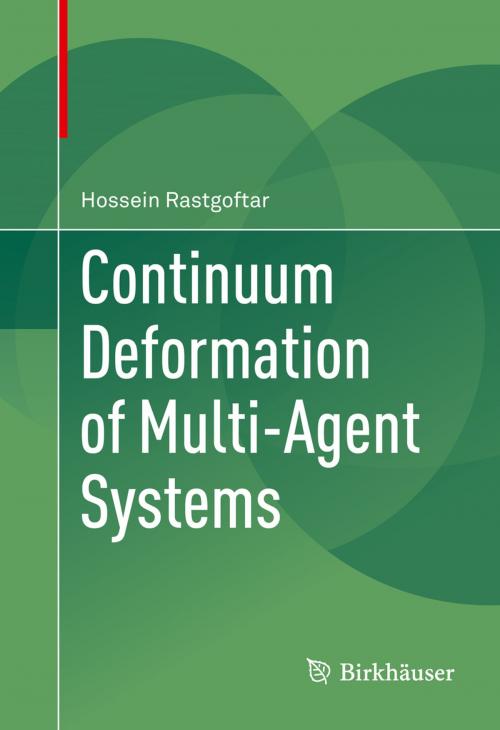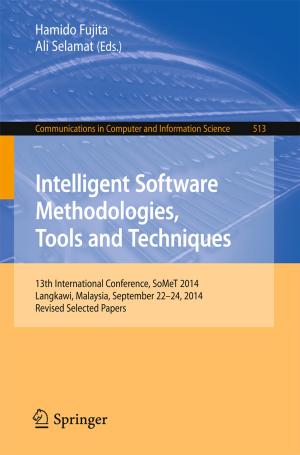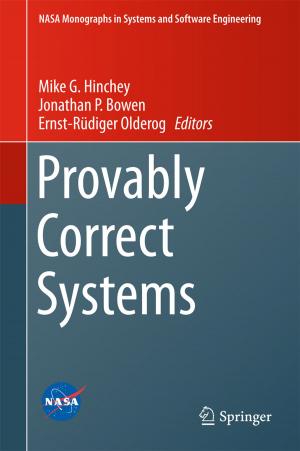Continuum Deformation of Multi-Agent Systems
Nonfiction, Science & Nature, Science, Other Sciences, System Theory, Technology, Automation, Reference & Language, Reference| Author: | Hossein Rastgoftar | ISBN: | 9783319415949 |
| Publisher: | Springer International Publishing | Publication: | December 14, 2016 |
| Imprint: | Birkhäuser | Language: | English |
| Author: | Hossein Rastgoftar |
| ISBN: | 9783319415949 |
| Publisher: | Springer International Publishing |
| Publication: | December 14, 2016 |
| Imprint: | Birkhäuser |
| Language: | English |
This monograph presents new algorithms for formation control of multi-agent systems (MAS) based on principles of continuum mechanics. Beginning with an overview of traditional methods, the author then introduces an innovative new approach whereby agents of an MAS are considered as particles in a continuum evolving in ℝn whose desired configuration is required to satisfy an admissible deformation function. The necessary theory and its validation on a mobile-agent-based swarm test bed are considered for two primary tasks: homogeneous transformation of the MAS and deployment of a random distribution of agents on a desired configuration. The framework for this model is based on homogeneous transformations for the evolution of an MAS under no inter-agent communication, local inter-agent communication, and intelligent perception by agents. Different communication protocols for MAS evolution, the robustness of tracking of a desired motion by an MAS evolving in ℝn, and the effect of communication delays in an MAS evolving under consensus algorithms or homogeneous maps are also explored.
Featuring appendices which introduce the requisite concepts from continuum kinematics and graph theory, this monograph will provide advanced graduate students and researchers with the necessary background to understand and apply the methods presented.
This monograph presents new algorithms for formation control of multi-agent systems (MAS) based on principles of continuum mechanics. Beginning with an overview of traditional methods, the author then introduces an innovative new approach whereby agents of an MAS are considered as particles in a continuum evolving in ℝn whose desired configuration is required to satisfy an admissible deformation function. The necessary theory and its validation on a mobile-agent-based swarm test bed are considered for two primary tasks: homogeneous transformation of the MAS and deployment of a random distribution of agents on a desired configuration. The framework for this model is based on homogeneous transformations for the evolution of an MAS under no inter-agent communication, local inter-agent communication, and intelligent perception by agents. Different communication protocols for MAS evolution, the robustness of tracking of a desired motion by an MAS evolving in ℝn, and the effect of communication delays in an MAS evolving under consensus algorithms or homogeneous maps are also explored.
Featuring appendices which introduce the requisite concepts from continuum kinematics and graph theory, this monograph will provide advanced graduate students and researchers with the necessary background to understand and apply the methods presented.















